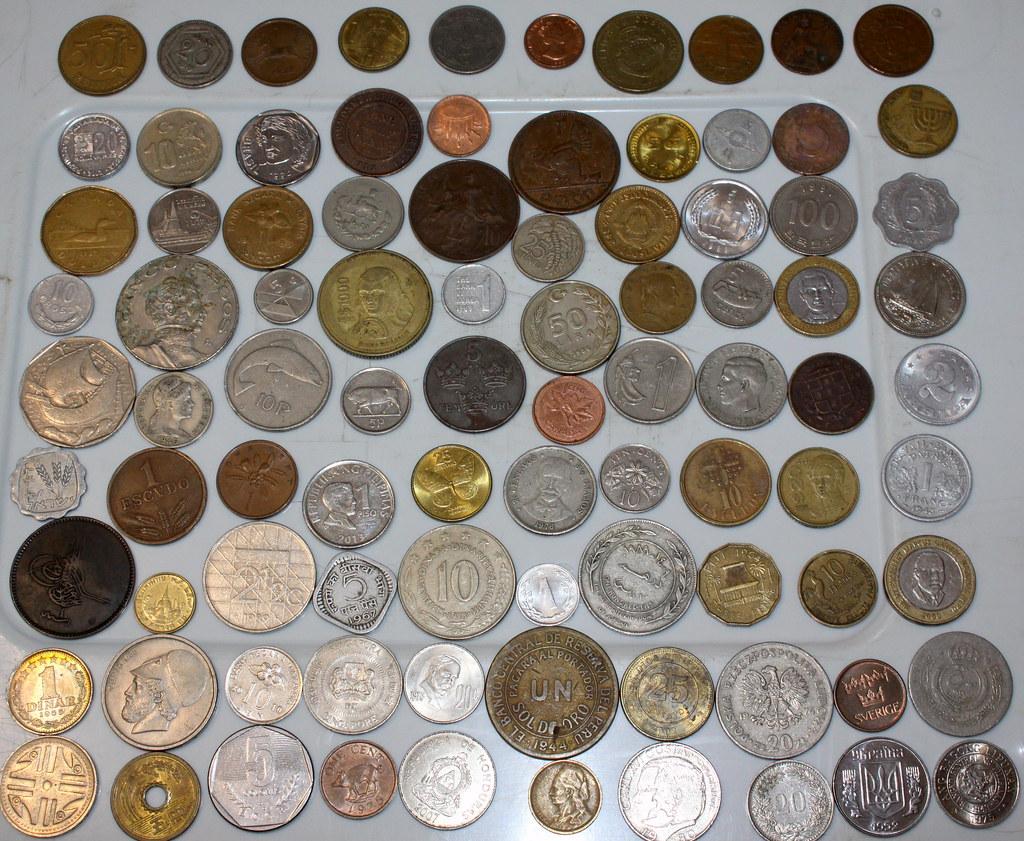As dawn breaks over the Mediterranean, a digital storm brews in the underbelly of Spain’s vibrant, technologically adept society. Worldcoin, the lustrous sphere of cryptography coursing through the veins of the global economy, has been ensnared in a web of controversy. Unexpectedly, the Spanish government has cast a shadow of uncertainty over this flourishing innovation, applying a temporary pause to its trek, driven by unease that echo concerns for privacy. The pause is a precarious dance with destiny, one that could determine the future trajectory of this riveting cryptocurrency in Spain, and indeed, the world. Pull up a chair, as we traverse into the fascinating saga of technological triumphs, privacy titanics, and regulatory roulette, with the star of our tale today, the Worldcoin.
Table of Contents
- Understanding the Temporary Ban on Worldcoin in Spain
- Heightened Privacy Concerns: The Crux of Spain’s Ban on Worldcoin
- How Worldcoin Can Overcome the Privacy Concern Hurdle in Spain
- The Repercussions of Spain’s Ban on Worldcoin’s Global Market Impact
- Moving Ahead: Strategies for Worldcoin to Regain Trust and Legal Status in Spain
- Wrapping Up

Understanding the Temporary Ban on Worldcoin in Spain
In a surprising but significant move, Spain’s central financial authority has placed a temporary ban on Worldcoin, a popular cryptocurrency globally appreciated for its innovative data-linked transactions, citing privacy concerns. The decision was made following an extensive review which raised red flags regarding the privacy of user data.
This wing-clipping development draws attention to Worldcoin’s unique transaction system, famously known as ‘The Orb’. It depends on iris-scanning technology that collects user’s biometric data with the purpose of distributing cryptocurrency. However, concerns have been raised regarding the privacy of this biometric data and whether it’s truly anonymous. Some critics argue that the data could be misused or even sold if it lands in the wrong hands.
Amidst the growing debate over data privacy, let’s take a deeper look at Worldcoin’s operation and why it’s under scrutiny. Highlighting the major areas of contention:
-
- Authenticity of Anonymity: While Worldcoin claims that the collected data are fully anonymized, skeptics argue there’s no real way to verify their claims without independent audits.
-
- Data Storage: Questions arise around where and how securely this sensitive information is stored. The absence of transparency regarding storage protocols is a big concern.
-
- Data Leakage: The risk of data leaks is inevitable and poses a huge threat in any system — Worldcoin is no exception.
In response to this sudden ban, Worldcoin has made a commitment to address these issues more transparently and will take the lead in conducting an unbiased third-party audit. The table below provides a brief overview of the immediate response from Worldcoin after the imposed ban:
| Action Plan | Execution Time |
|---|---|
| Inviting Third-party Audit | Immediate |
| Enhancing data privacy | 2-3 months |
| Improving transparency on Data Storage | 4-6 months |
The ban on Worldcoin in Spain, though temporary, shines a spotlight on the growing global concerns about the management and use of personal data. It also prompts further debates about potential regulatory mechanisms in the world of cryptocurrencies to prevent misuse of such sensitive information.

Heightened Privacy Concerns: The Crux of Spain’s Ban on Worldcoin
In a recent turn of events, the Spanish government has provisionally placed Worldcoin, an innovative global cryptocurrency project, on hold, citing concerns over privacy. Following an outcry from privacy activists, lawmakers made the decision to scrutinize the legality of the cryptocurrency’s unique orb-shaped scanner, which captures biometric eye data.
Despite Worldcoin’s assurance that the collected iris data is secure and anonymized, the Spanish public have raised eyebrows about potential misuse. Several critical points have been raised, which are found to be at the heart of the matter:
-
- Data Ownership: Who owns the biometric data collected?
-
- Data Misuse: Could this sensitive data potentially be misused?
-
- Legal Compliance: Is Worldcoin’s data collection practice legally compliant?
These issues have compelled the Spanish authorities to review Worldcoin’s modus operandi in order to assuage the public’s privacy concerns. Notably, critics argue that despite the company’s purported intent to create a universally-accessible cryptocurrency, its current methodology raises many unanswered questions relating to personal data security.
| Company | Action Taken |
| Worldcoin | Ban Imposed by Spain |
| Spanish Government | Review of Privacy Practices |
To conclude, Spain’s ban on Worldcoin signifies the increasing relevance of privacy concerns in governing cryptocurrency operations. This watershed event highlights the importance of clear regulatory frameworks that align with fast-moving technological trends and public expectations. It serves as a clear signal to other cryptocurrencies and technical innovators to prioritize user privacy while designing and deploying disruptive technologies.

How Worldcoin Can Overcome the Privacy Concern Hurdle in Spain
The sudden ban imposed on Worldcoin in Spain stirred quite a buzz in the crypto community. This revolutionary currency caught the attention of regulatory officers due to serious privacy concerns. However, we believe that Worldcoin has the capability to overcome these obstacles. Here’s how:
Enhance Data Anonymization Techniques
Worldcoin can take a different approach to data handling by improving its anonymization techniques. Incorporating encryption technologies such as hash functions and pseudo-random generators will ensure that data is unreadable by unauthorized parties. Furthermore, these techniques will help preserve users’ identities while still maintaining the transparency that blockchain networks are known for.
| Element | Role |
|---|---|
| Hash Functions | Transformation of transaction data into a format unreadable without the necessary decryption key. |
| Pseudo-random Generators | Creation of random public keys to mask real customer identities. |
Opt-In Privacy
A more drastic measure for Worldcoin to consider is the opt-in privacy feature. This way, each user will have the choice to either disclose or hide their transaction details. Options could include full privacy, semi-privacy (where certain details are hidden), and full transparency. Consequently, not only will this approach be appreciated by the more privacy-conscious users, but it will also reinforce Worldcoin’s respect for user privacy without compromising the crypto’s identity.
Increased Legal Compliance
In order to placate the Spanish authorities, Worldcoin will need to toe the line in terms of legal compliance. Crypto providers operating in Spain are required to follow the country’s Act on Information Society Services, which mandates robust procedures to protect user’s personal data. If Worldcoin can prove that it has integrated an end-to-end privacy solution – one that adheres to this act – it will go a long way toward getting its ban lifted.

The Repercussions of Spain’s Ban on Worldcoin’s Global Market Impact
In a surprising move, Spanish authorities enacted a non-permanent ban on Worldcoin, a global cryptocurrency platform, citing concerns over digital privacy. Known for its unique offering, Worldcoin distributes its own cryptocurrency in return for a scan of users’ irises. The reaction to the ban has been immediate and profound, not just on the value of Worldcoin, but on the cryptomarket as a whole.
Since the announcement of the ban, Worldcoin’s trading volume significantly dipped, causing widespread anxiety within crypto communities. Notably, the drop in Worldcoin’s value has had ripple effects on other digital currencies, causing a domino effect in the global market. Consider the following major currencies, for instance:
| Cryptocurrency | Change in Value (%) |
|---|---|
| Bitcoin | -4.2 |
| Ethereum | -3.7 |
| Ripple | -2.8 |
This development is not just about Worldcoin; it also speaks to larger concerns within Spain and other countries about data privacy associated with such technologies. This ban has urged many to question the balance between innovation and privacy. It has been argued that benefits like:
-
- Financial inclusivity
-
- Decentralization of power
-
- Potential as a stable currency
As much as these are desirable, they do not override the need to protect users’ personal information. The Worldcoin ban is, therefore, seen by many as a cautionary tale for the fast-paced, often unregulated world of cryptocurrencies. In the future, digital currency platforms will have to ensure that they prioritize users’ privacy to avoid such pitfalls. As the situation evolves, all eyes remain fixated on Spain, Worldcoin, and its direct impact on the global market’s behavior.

Moving Ahead: Strategies for Worldcoin to Regain Trust and Legal Status in Spain
In this current climate of growing cryptocurrency acceptance, understanding the reasons behind Spain’s temporary ban against Worldcoin is critical to paving the path forward. The ban, primarily driven by privacy concerns, sent shockwaves through the crypto community. A few strategies can be put in place to regain trust and legal status in Spain.
Transparent KYC/AML Policies: One primary concern highlighted is the lack of transparency in Know Your Customer (KYC) and Anti Money Laundering (AML) policies. Worldcoin must invest in overhauling these aspects to ensure they align with the legal requirements. Transparency on these fronts can create opportunities for open dialogue with regulators, presenting a willingness to cooperate and comply.
User Data Protection: Another potential strategy lies in building strong data protection measures that align with European General Data Protection Regulation (GDPR). Worldcoin should be committed to maintaining the highest standards of privacy and provide tangible evidence of how user data is protected. Robust encryption methods, secure servers, and frequent third-party audits may help placate their privacy concerns.
| Strategy | Key Action Points |
|---|---|
| KYC/AML policies | Increase transparency, update to align with legal requirements |
| User Data Protection | Implement robust data protection measures, comply with GDPR, conduct regular audits |
Engagement with Regulators: Continuous engagement with Spanish financial authorities is crucial. Educating regulators about blockchain technology, demonstrating the steps Worldcoin is taking towards compliance and safety, can lead to constructive dialogue and potential partnerships. In other words, proactivity in addressing issues before they become major problems could pave the way to reinstatement.
The road to recovery may not be swift, but with strategic planning and implementation, Worldcoin has a chance to regain its foothold in Spain. By implementing concrete actions and showcasing its commitment to regulatory compliance and user privacy, Worldcoin can reset its course and emerge stronger from this setback.
Wrapping Up
In conclusion, the temporary ban on Worldcoin in Spain has raised important questions about the balance between cutting-edge technology and privacy rights. As the debate continues, it is crucial for all stakeholders to work together to find solutions that prioritize both innovation and the protection of individuals’ personal information. Stay tuned for further updates on this developing story. Thank you for reading.






